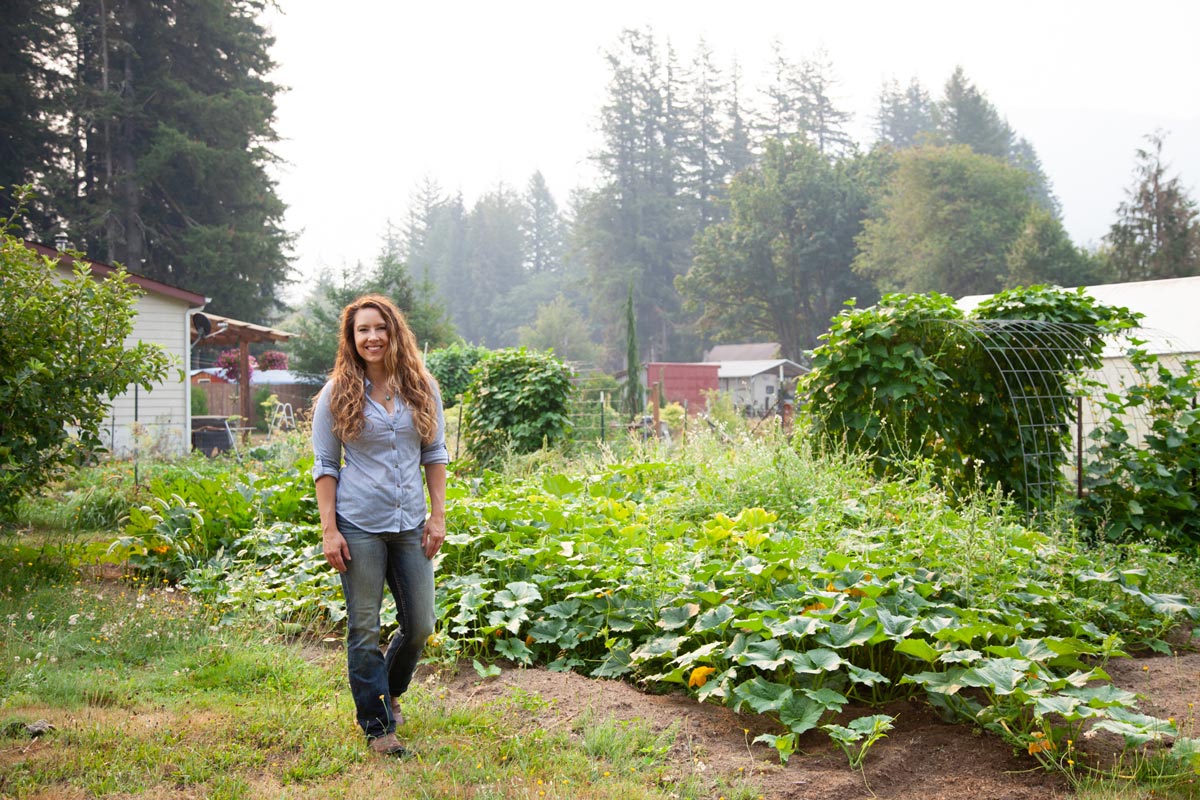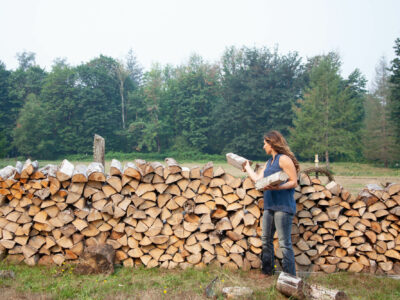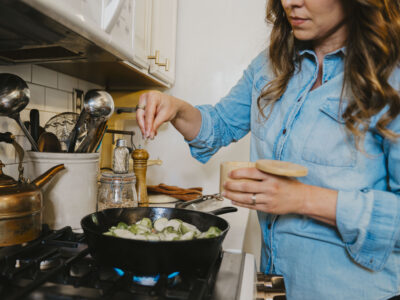We talk a lot about becoming more self-sufficient in this homesteader life, but in reality, being completely self-sufficient isn’t possible in this day and age. In fact, it wasn’t possible with the pioneers of old either. We must rely on the community, so let’s unpack what community sufficiency means.
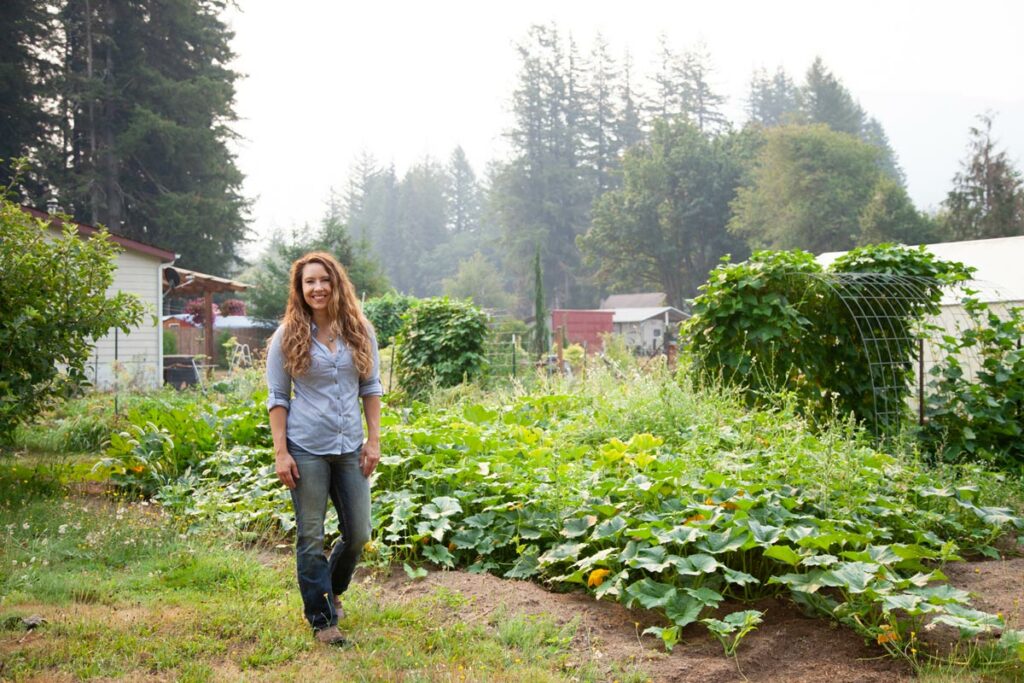
If you listened to last week’s episode of the Pioneering Today Podcast with Kate from Venison for Dinner, we were discussing this concept of self-sufficiency vs. community sufficiency and it really got me thinking that this topic should be discussed and dispelled.
Natural Remedies Made Simple

Start your home apothecary with confidence—even if you’re brand new. Learn how to choose the right herbs for your body using the simple principles of herbal energetics.
Discover how warming, cooling, drying, and moistening herbs affect your body—so you can stop guessing and start making remedies that actually work.
I happen to come from a long line of people who lived close to the land and produced as much food as possible because, back then, many people couldn’t afford to buy it.
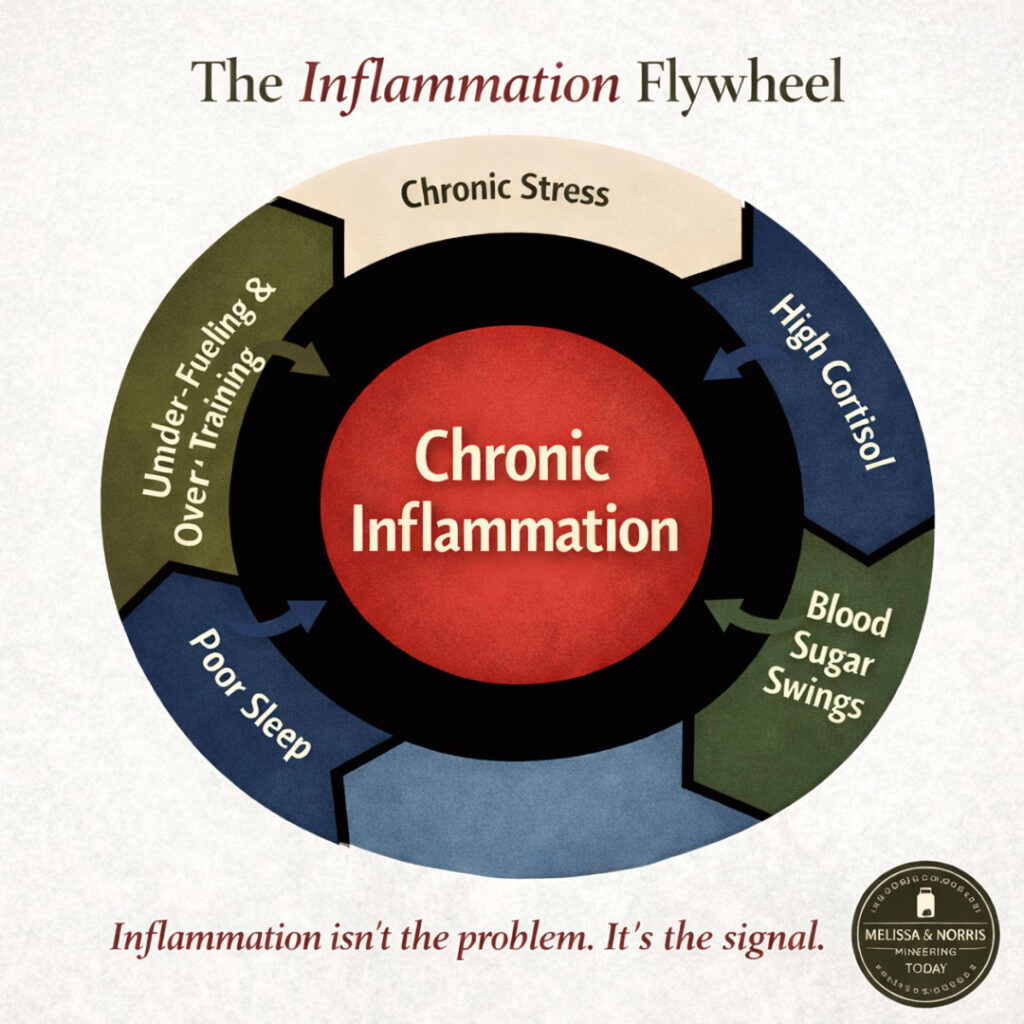
The Hidden Cycle Keeping You Inflamed
If you’ve been feeling puffy, tired, achy, or wired-but-tired, this two-page guide will help you understand what may be happening behind the scenes — even if you’re eating “healthy.”
Download the Inflammation Flywheel Guide and learn:
- Where to start so you don’t feel overwhelmed
- The 5 most common drivers that keep inflammation switched on
- Why blood sugar swings, stress, and poor sleep feed each other
My dad grew up during the Great Depression era and saw first-hand what it was like to go without. In fact, my dad has shared many times with us what it was like growing up during the Great Depression, he even shared in an interview what it was like growing up without electricity or plumbing, especially in the wintertime!
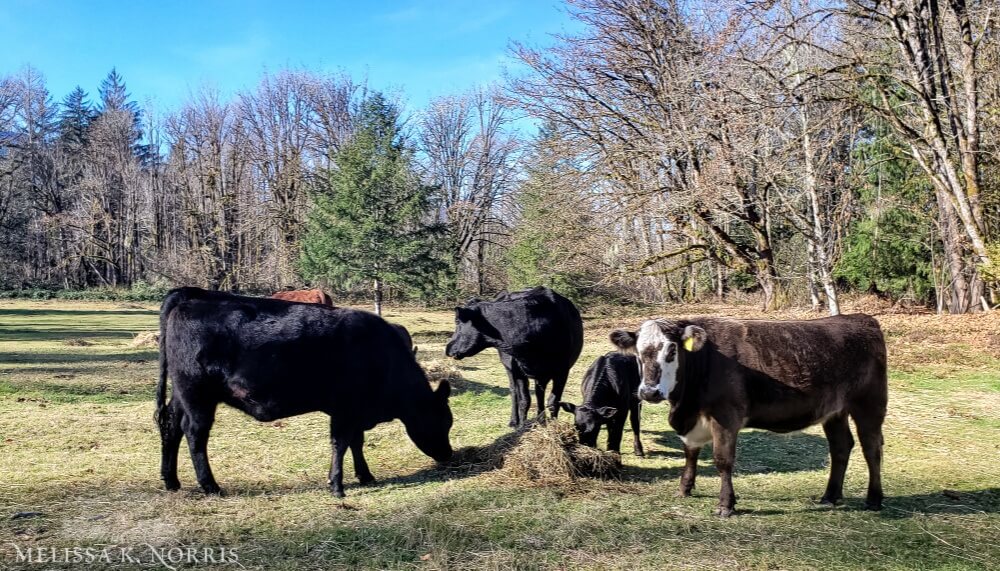
Table of Contents[Hide][Show]
Why Community Sufficiency Makes Sense to Me
Growing up we always raised beef cattle, grew a garden, and preserved our own food. Being the youngest of ten children, my parents brought me along on many of the day-to-day tasks so I learned by experience.
Out of my parent’s ten children, only three of us are currently producing and raising our own food with this community sufficiency mindset.
For me, raising our own food is the best option. We raise enough meat to feed our family for a year and have recently expanded that number to sell to friends and our local community.
We do this so we have the assurance of how our animals are treated, what they’re fed, and we have complete control over the processing of the meat.
Likewise, in the garden, I’ve learned to grow a year’s worth of food. I get to decide what goes on my that food, how I treat for pests (organically, of course!) and I’m diligent to improve and build up healthy soil to naturally ward off diseases.
I do feel like the best option is to raise our own food, but I also realize that not everyone has this option.
If you’re looking for high-quality farm-raised meat, or fresh garden produce, look around and see what’s available locally to you. Consider supporting small farms, check out Farmer’s Markets, ask around, and get the word out that you’re looking!
From there, if you still can’t find anything, then do check out ButcherBox. I have loved getting ethically caught seafood from them since this isn’t something that’s readily available to us, but they source and sell their products from farms and farmers utilizing the best organic methods for raising their meat.
I have tasted every one of their products and can stand behind their company as they source their products from smaller farmers wanting to provide healthy, sustainable meat.
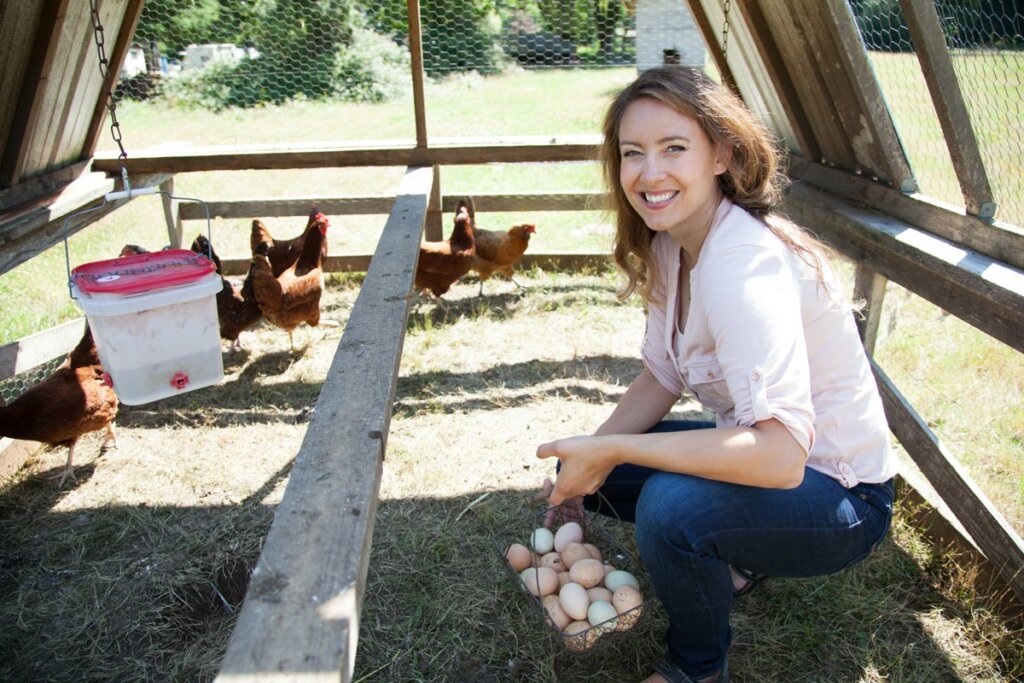
What is Community Sufficiency?
The next layer of being community sufficient is to look beyond what you’re growing or producing yourself, or perhaps getting from neighbors or the Farmer’s Market.
Support Local/Independently Owned Stores
No matter where you live, one way you can become community sufficient is to support independent businesses.
Whenever I’m out in the surrounding towns where I live, or when I’m traveling, I like to seek out local, independent businesses to support.
Support Small Business Online
This also goes for shopping online. I know a lot of smaller independent businesses that put their products on Amazon because it’s a way for them to get discovered.
Now, there are also a lot of products on Amazon that come from overseas, so I do think it’s important to know where you’re purchasing from before clicking “buy now”.
One way to utilize the convenience of online shopping while still supporting small businesses is that I’ll try out a product found on Amazon (making sure it’s a USA-made product and an independent company first).
If I decide I like the product and want to reorder, I’ll then go to their actual website and order directly from them moving forward because they’ll make more money off the sale than if I continue to buy their products through Amazon.
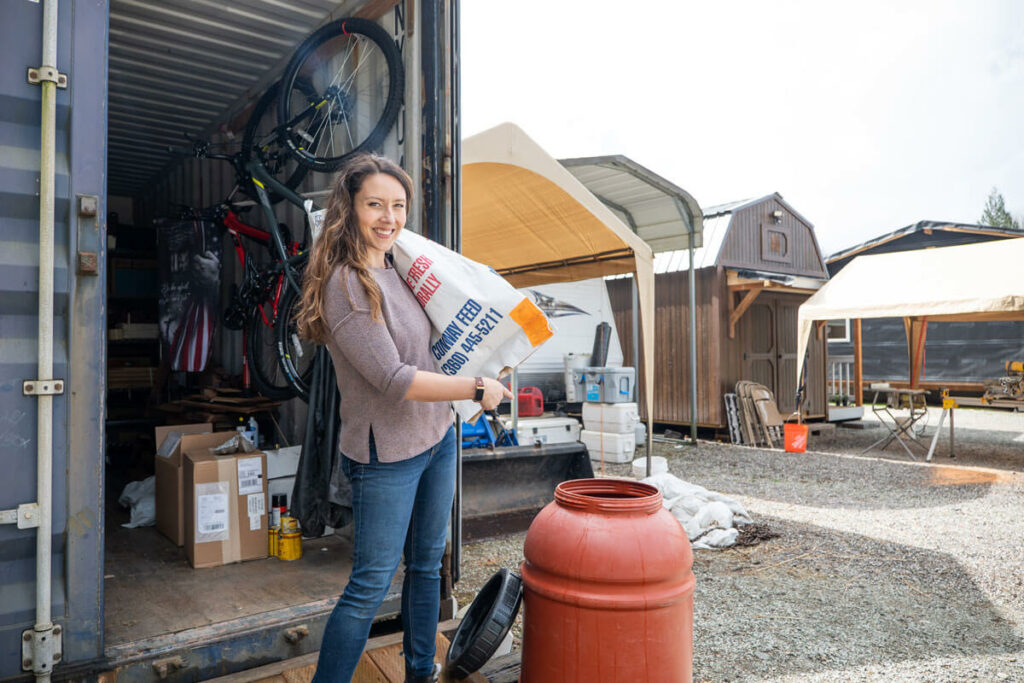
Buy Regionally
If you can’t find what you need locally, consider looking regionally before just buying name brands or from the big-box stores.
I talk more about this in podcast #239 where I discuss stocking up on bulk grains and flour for your home.
We buy regionally with some of our animal feed as well because we can buy them in “super-sacks”. You can listen to the podcast where I discuss stocking up on animal feed here.
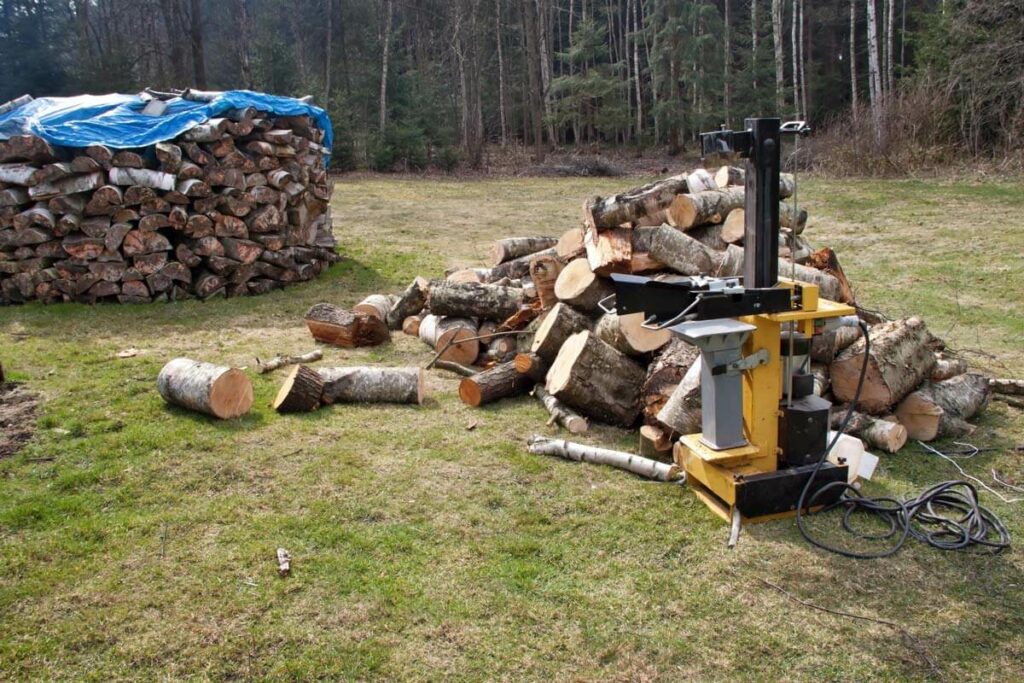
Sharing Resources
One way to be community-sufficient is to share your resources with those around you.
We have quite a bit of forested land and we harvest our own trees for our wood-burning stove that provides our heat all winter long. Because of this large task, we have invested in a log splitter because it’s a huge time saver.
Just recently, my neighbor had a tree fall on his property but he doesn’t have a log splitter because he doesn’t have very much forested land. So we loaned him our splitter so he could take care of his downed tree without him needing to go rent one or buy one. Community sufficiency at its finest!
The beauty of this whole community sufficiency mindset is that this particular neighbor happens to have a chicken plucker, which is an item we haven’t purchased our own yet, so when we dropped off the wood splitter, we picked up his chicken plucker.
Another method for growing community sufficiency is starting a working bee. A working bee is a group of people who come together to share the workload and the bounty.
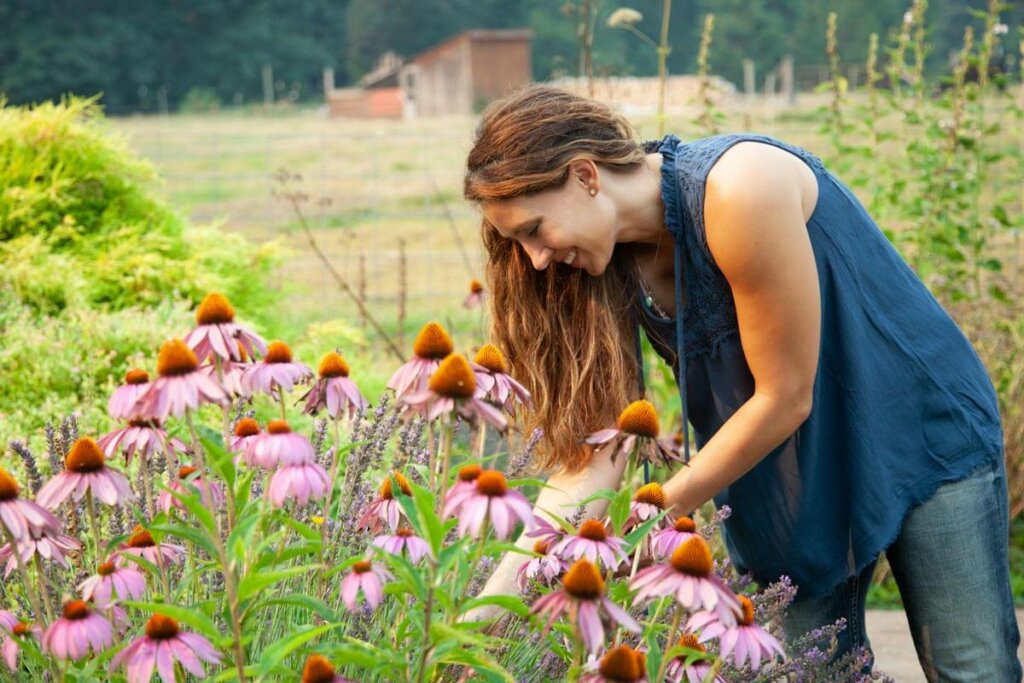
What This Means for You
If you’re not sure how this idea of community sufficiency fits into your lifestyle, start looking at the resources you need and the resources you have.
Consider how those around you may benefit from the resources you have, and start looking to those around to for those resources you need.
All it takes for a mutually beneficial relationship to form is for you to fill a need that someone else has and vice-versa.
But don’t limit this to supplies or products only, your time and labor can be of value to your neighbors as well.
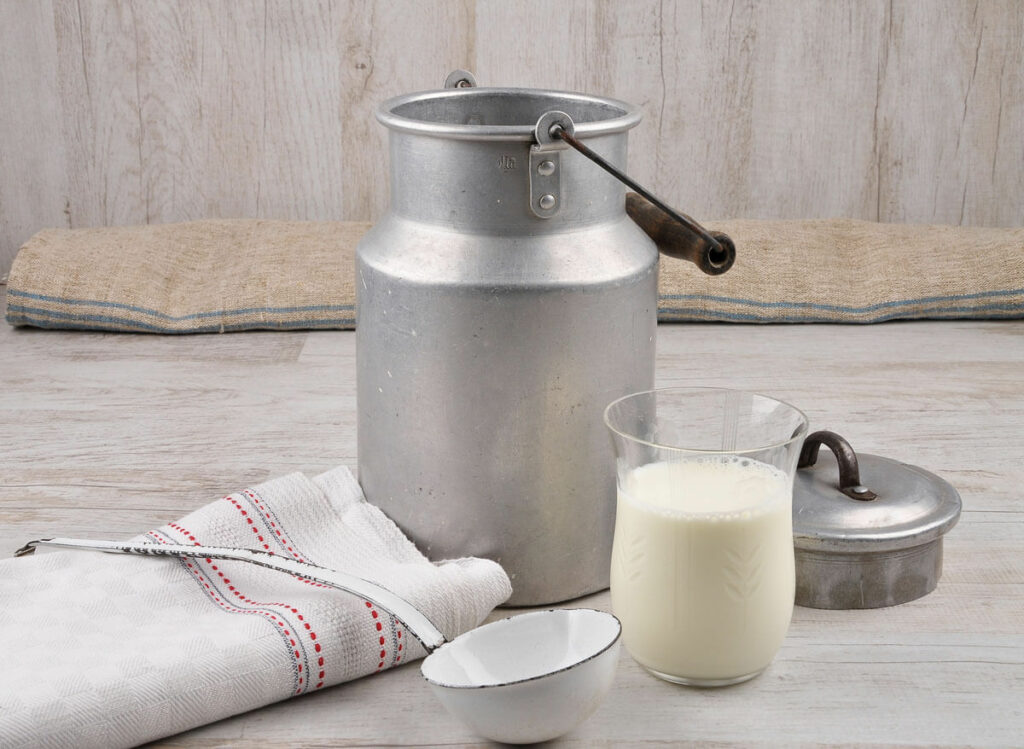
More Ways to Build Community-Sufficiency
There are many ways my family is trying to foster this idea of community with those who live around us.
You now know that we’ve had a milk cow for over a month, and our small family of four simply cannot drink enough milk to keep up with the supply that we’re getting.
This year we decided not to raise our own pigs as we’ve done in years past (you can read more about raising pigs here), but some of our neighbors raised more pigs than they need.
So we’re doing a trade of milk for pork products and it’s working out phenomenally for both of us.
We’re also raising more backyard egg-laying chickens than we need for our family of four, but we’re blessed to be able to provide eggs for our neighbors to purchase.
This is the same mindset that I have with the expanded medicinal herb gardens we’re growing this year. We’ll be hosting one or two herbal workshops on our homestead this summer where I’ll be teaching how to use the herbs for the different remedies.
If this is something that interests you, be sure to sign up for my email list because these spots will be offered to those who are on my list first!
Verse of the Week: Judges 6:36
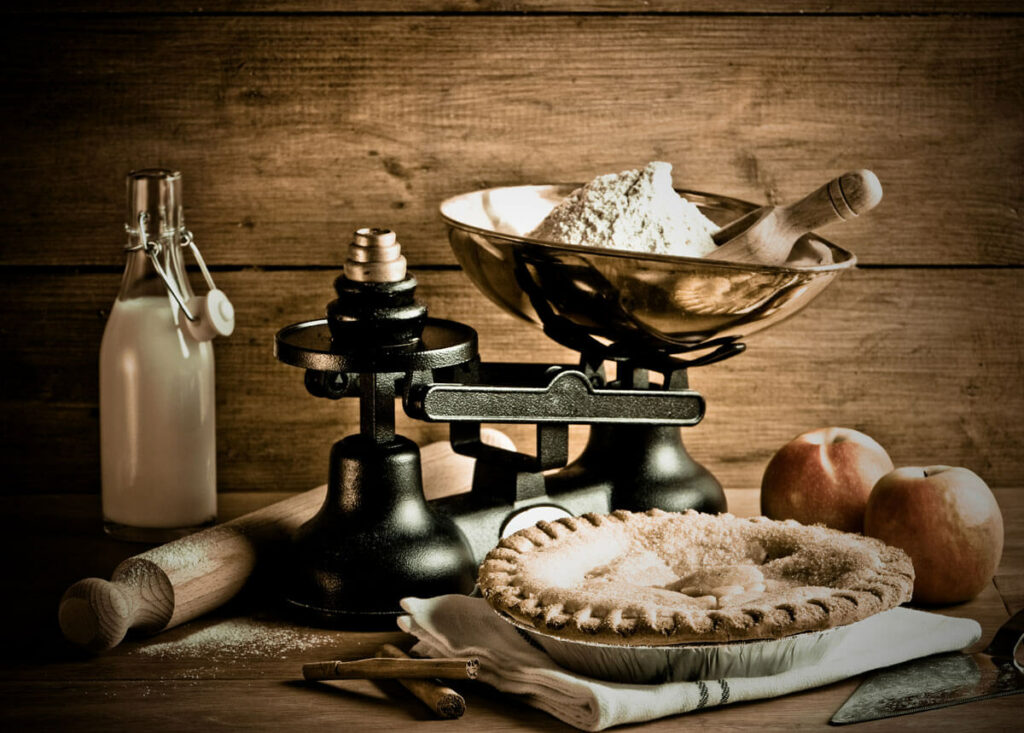
More Articles You May Enjoy
- Planning our “Farm Stay” Homestead
- 10 Things Our Grandparents Reused
- Essential Homestead Skills
- 6 Things Our Great-Grandparents Did Better Than Us
- How to Find & Buy Land Beyond the Usual Routes
- 5 Life Lessons from the Great-Depression
- 7 Depression Era Tips to Stretch Your Food Budget
- 8 Tips to Save Money Now
- Building a Great Depression Era Pantry
- The First Time Homesteader & Things I’d Do Differently
- Time Management Skills for the Homestead
- Our New 40-Acre Homestead Property (BUT It’s Not For Us!)
[fusebox_transcript]
